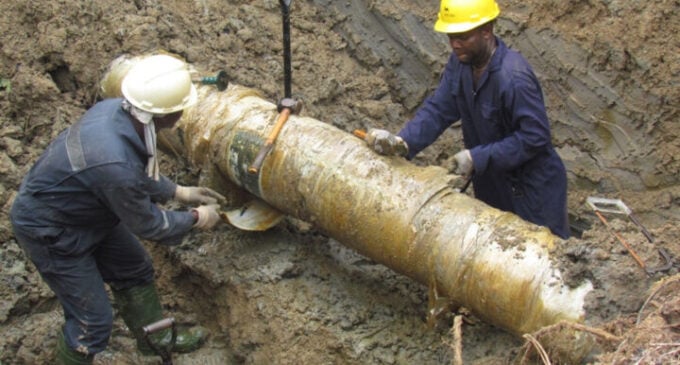FG develops framework for concession of pipeline assets

The federal government says it has developed a framework for the concessioning of oil and gas pipeline assets to private investors.
Gabriel Aduda, permanent secretary, ministry of petroleum resources, disclosed this on Thursday at a workshop in Abuja, according to a statement by Enefaa Bob-Manuel, the ministry’s director of information.
Aduda, represented by Felix Okeke, director, midstream, ministry of petroleum resources, said the role of pipeline in fluid transport could not be overstressed.
He said the desire of the government was to allow for private sector participation in the pipeline segment of the petroleum industry.
The permanent secretary also called for partnership to bridge the infrastructural gap in the segment, especially as the country has adopted gas as its transition fuel.
According to Aduda, Nigeria had two crude delivery pipeline networks to the refineries which included; the Escravos-Warri-Kaduna pipeline system and the Bonny-Port Harcourt pipeline system, all originating from crude export terminals.
“The 5,120 kilometers of pipeline network was also built for the distribution of petroleum products from the four refineries,” he said.
“With a capacity of 445,000 barrels of crude per day to storage depots across the country, and about 3,000 kilometers of gas pipeline network.”
Aduda said over the years, ownership of pipeline assets in the Nigerian oil and gas industry had been the exclusive preserve of the government.
He noted that the framework was conceived with the intention of bringing private investors to operate pipeline assets.
Aduda added that the ministry hoped to develop a framework for easy and efficient concessioning of oil and gas pipelines.
This will enable private companies to design, construct and operate pipeline infrastructure, the permanent secretary added.
“There are some challenges. We’ve been talking about vandalism. But if the private sector comes in, perhaps they will be able to safeguard their own pipelines more than the government is doing on its own,” he said.
“So we are looking at getting the private sector to be involved.”
















There are no comments at the moment, do you want to add one?
Write a comment